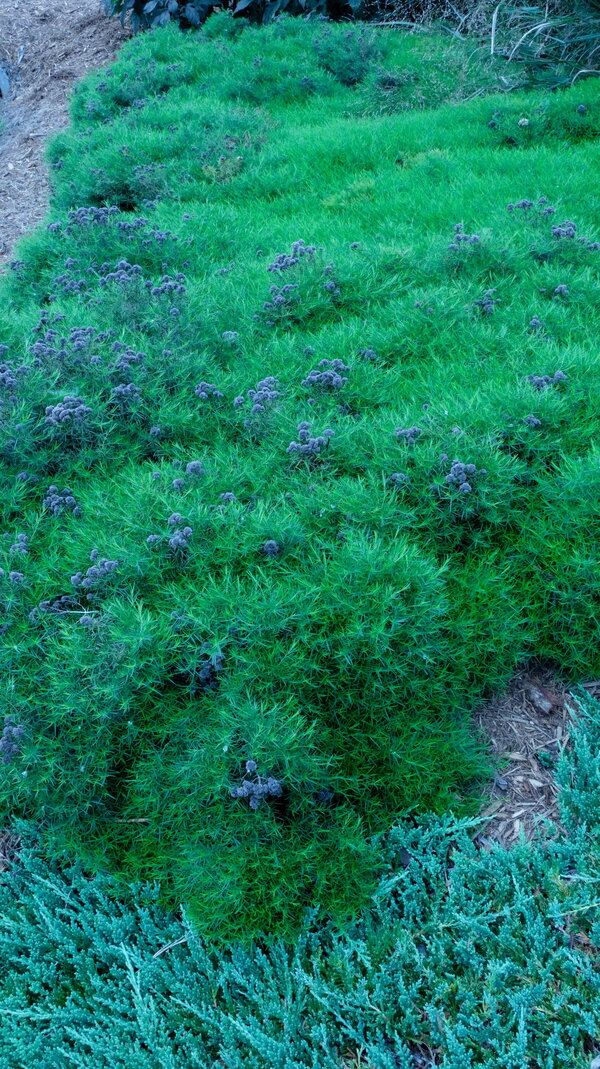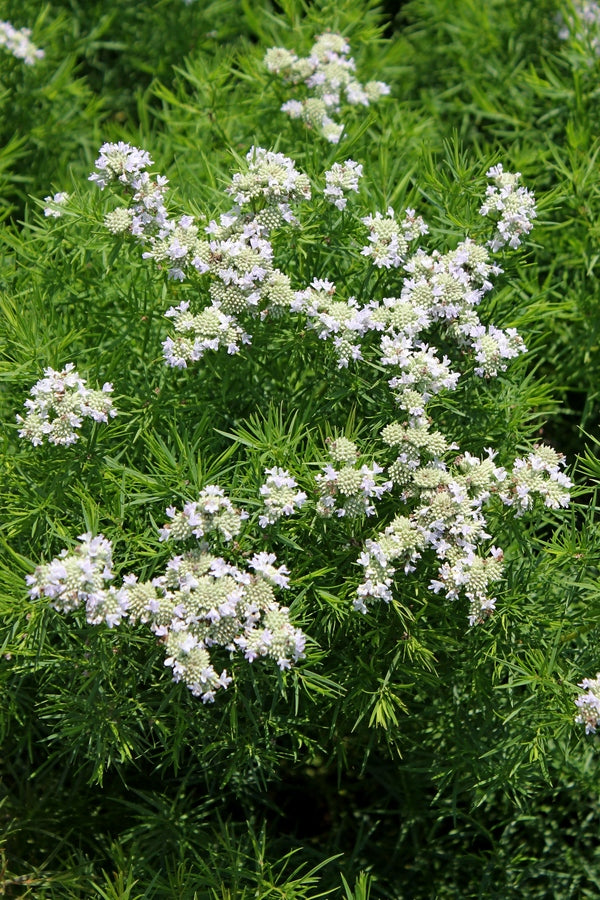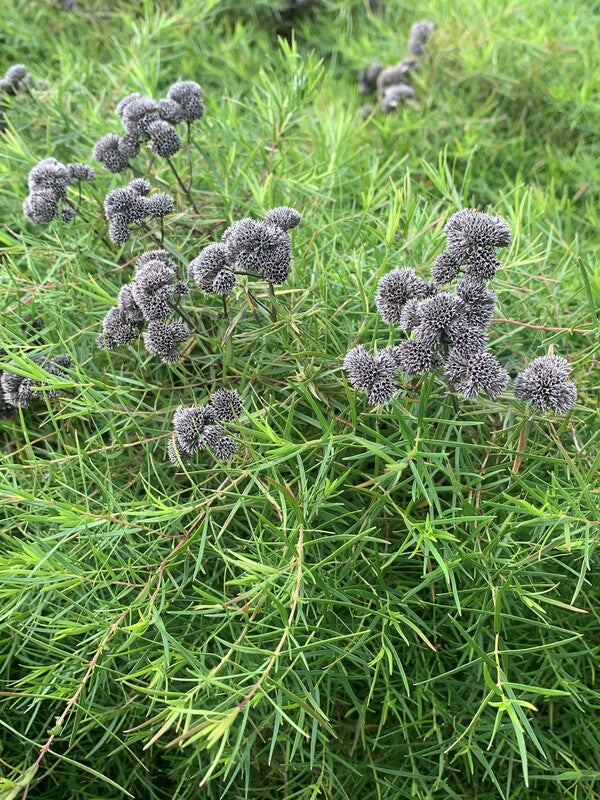Pycnanthemum tenuifolium 'Campbell Carpet'
Campbell Carpet Mountain Mint
Item #: 12812
Zones: 6a to 8b, at least
Dormancy: Winter
Height: 18" tall
Origin: United States
Pot Size: 3.5" pot (24 fl. oz/0.7 L)
Pycnanthemum tenuifolium 'Campbell Carpet' is a 2017 Plant Delights/JLBG introduction of our 2013 collection from Campbell County, Tennessee of the native narrow-leaf mountain mint. While typical Pycnanthemum tenuifolium reaches 30-36" tall, the foliage of Pycnanthemum 'Campbell Carpet' tops out at a mere 18" tall, making a superb groundcover of soft-textured, minty fragranced foliage... 7' wide in 3 years. The 18" tall pollinator-attracting flowering stems hover atop the clump with clusters of lavender-white flowers, starting in early summer and followed by attractive smoky purple seed heads. If you've got sunny ground to cover with average to dry soils, Pycnanthemum 'Campbell Carpet' is for you.
Maintenance:
Cut last year's stems to the ground before new growth starts in spring, or whenever they get shabby or you tire of their presence. Generally the seed heads remain attractive all winter. This is all it requires in the way of maintenance.
Of the 20 species of Pycnanthemum, some are clump forming, others are spreading. The clump forming species are suitable even to a small sunny garden. The spreading Mountain Mints are perhaps better suited to larger gardens where larger masses of ground covering plants are desired.
Growing Conditions:
Sun to part sun is best both for flowering and the pollinators which flock to the flowers. Average soil conditions are preferred.
Garden Value:
The Mountain Mints are superb supporters of a wide range of pollinating insects, especially so for many species are in bloom for several months. Beyond the importance of supporting pollinators there is the shear joy and entertainment of watching a wide range of insects working these flowers; a veritable Serengeti Plains in a few square feet of ones garden. They are attractive in bloom as well in their winter forms and are usually avoided by deer and rabbits.
Natural Impact:
Include in any sunny garden where one hopes to support pollinating insects.
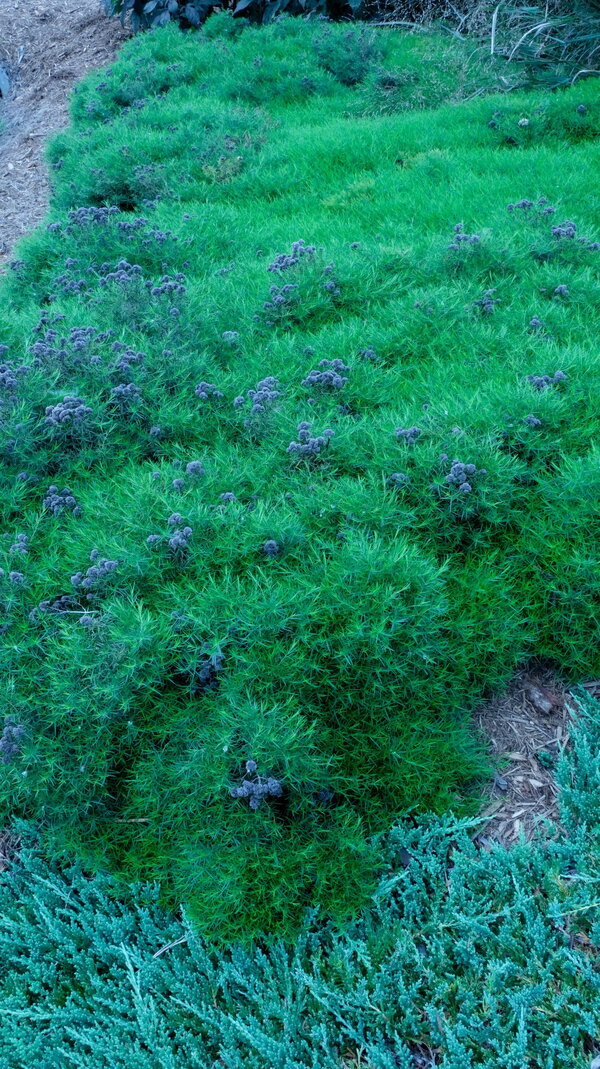
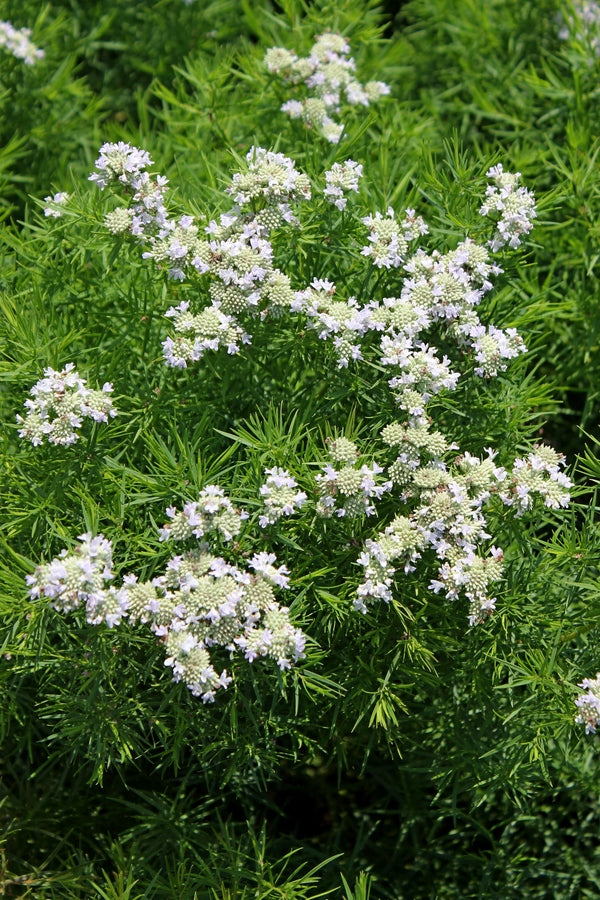
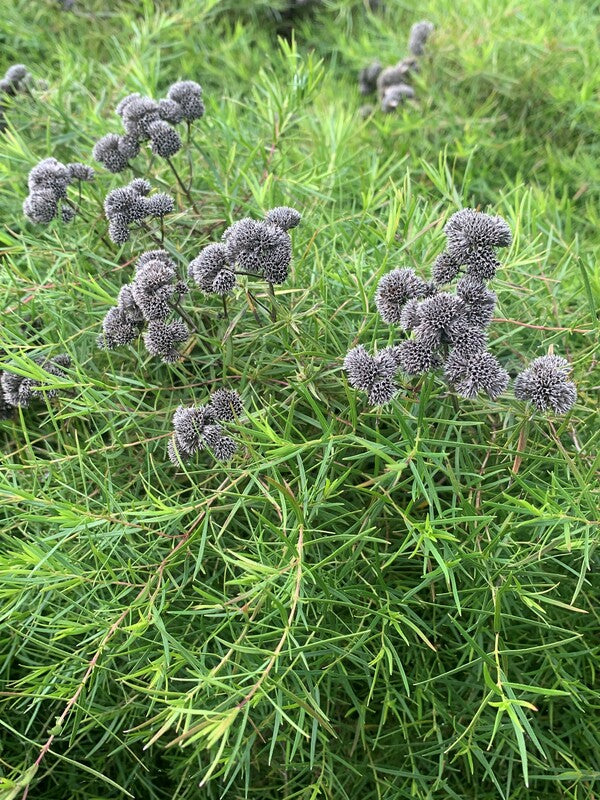
-
Other Attributes
Genus: Pycnanthemum
Flower Color: White/Cream
Leaf Color: Green
Bloom Time: Summer
Container Role: Thrillers
Garden Themes: Cottage Garden Plants , Green Roofs , Living Wall , White Garden
Other: Fragrant Foliage Plants , Edimentals , Cut Flower Plants , Deer Resistant Plants , Drought Tolerant Plants , Florida Native Plants , Georgia native plants , Groundcovers , Pollinator Plants , Medicinal Plants , North American Native Plants , North Carolina Native Plants , Plant Delights Introductions , Rabbit Resistant Plants , Texas Native Plants , Xeriscaping Plants , Plant Delights Creations and Discoveries , United States Native Plants

